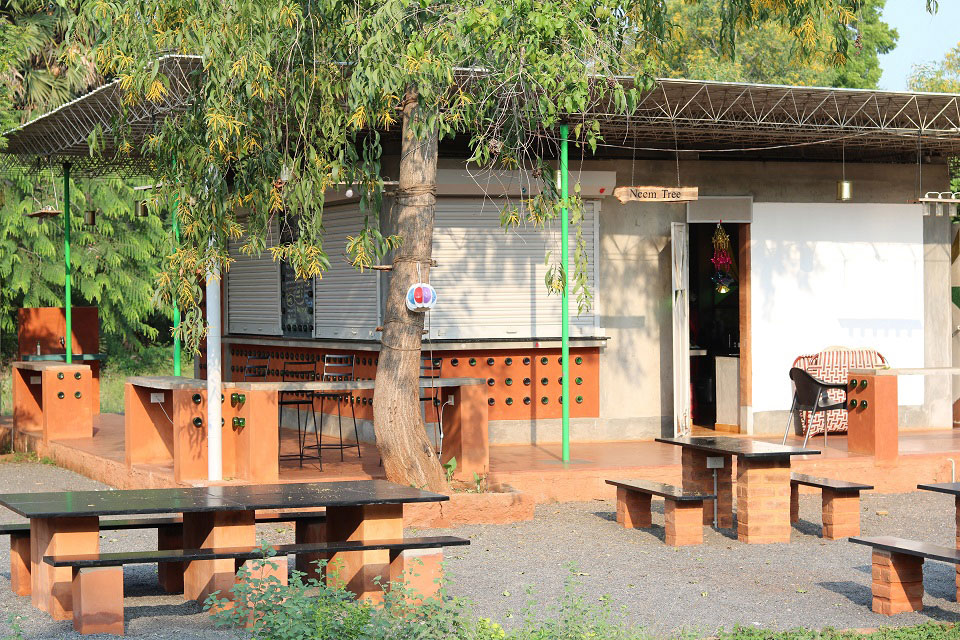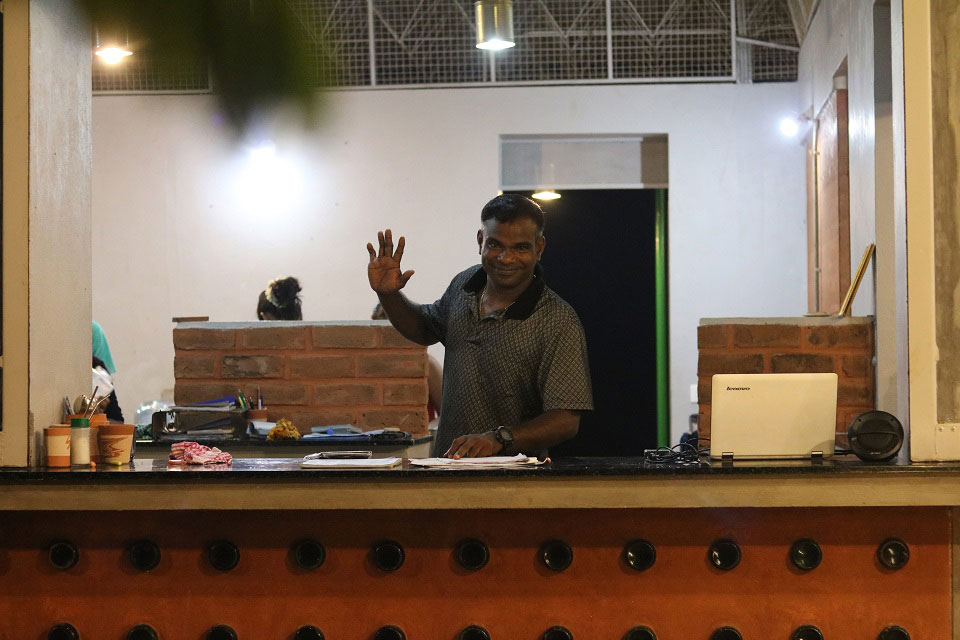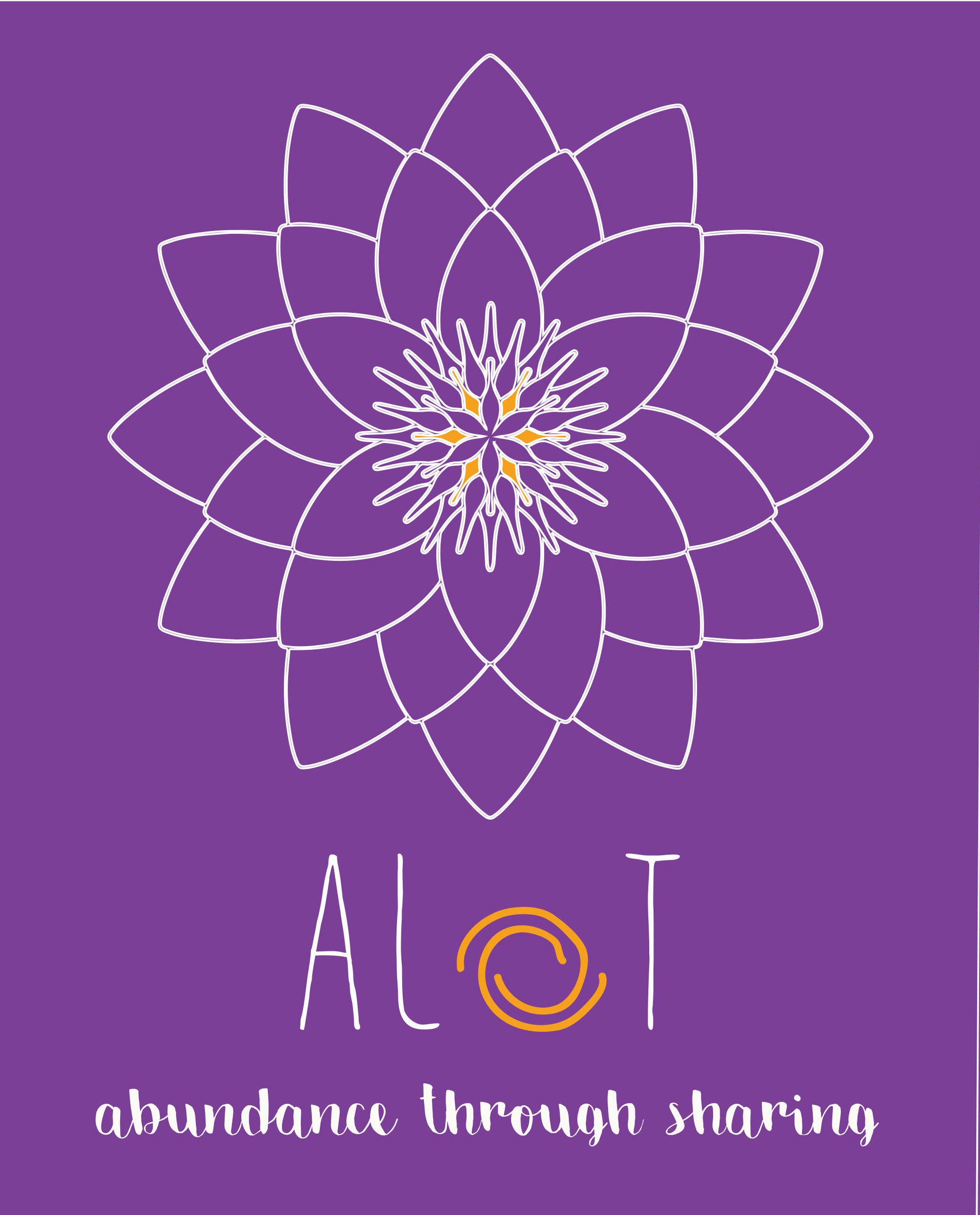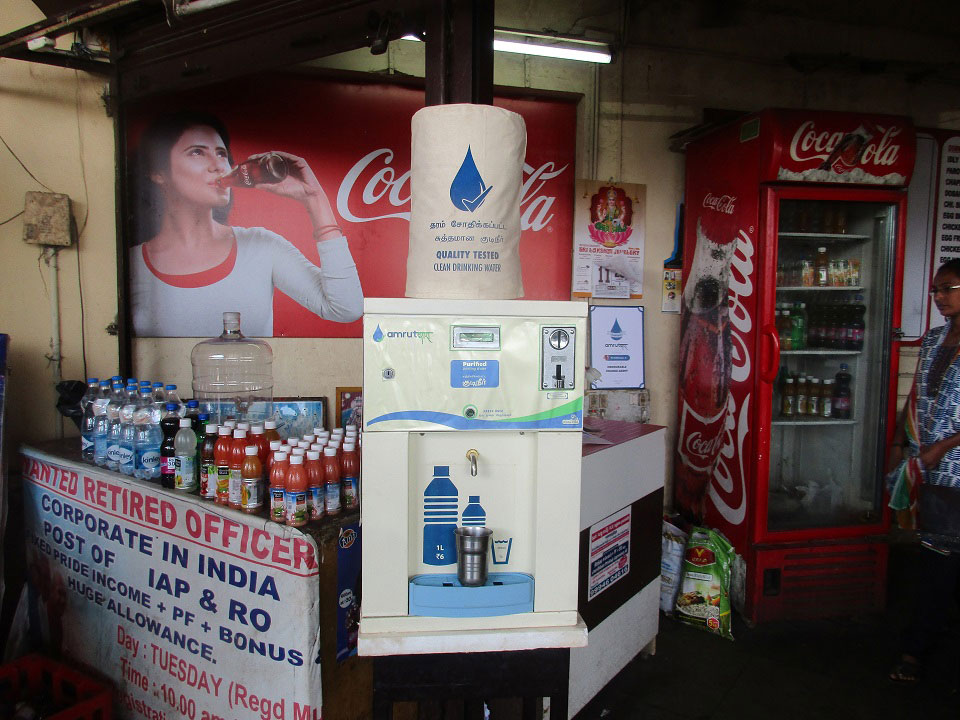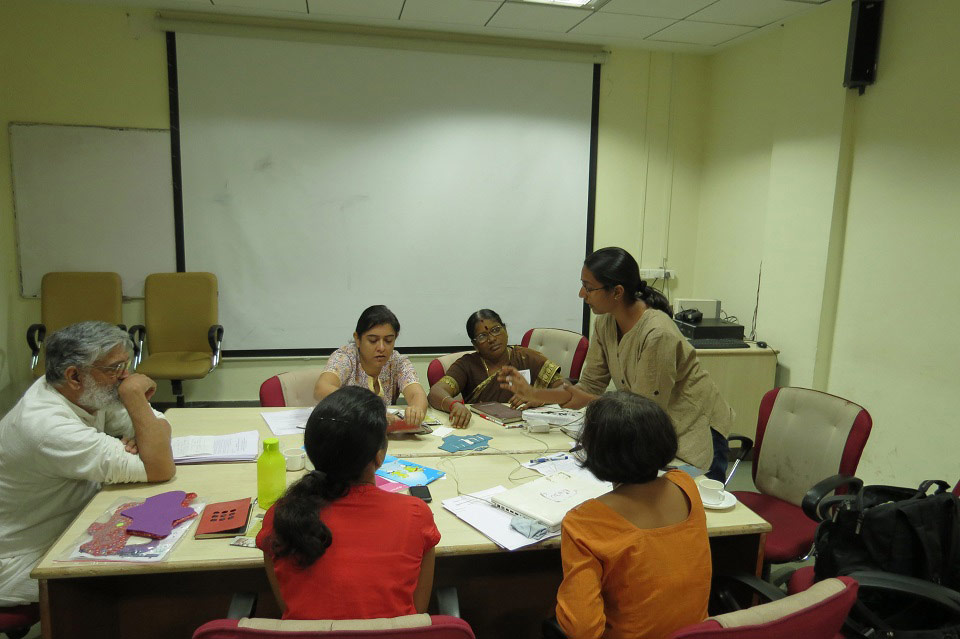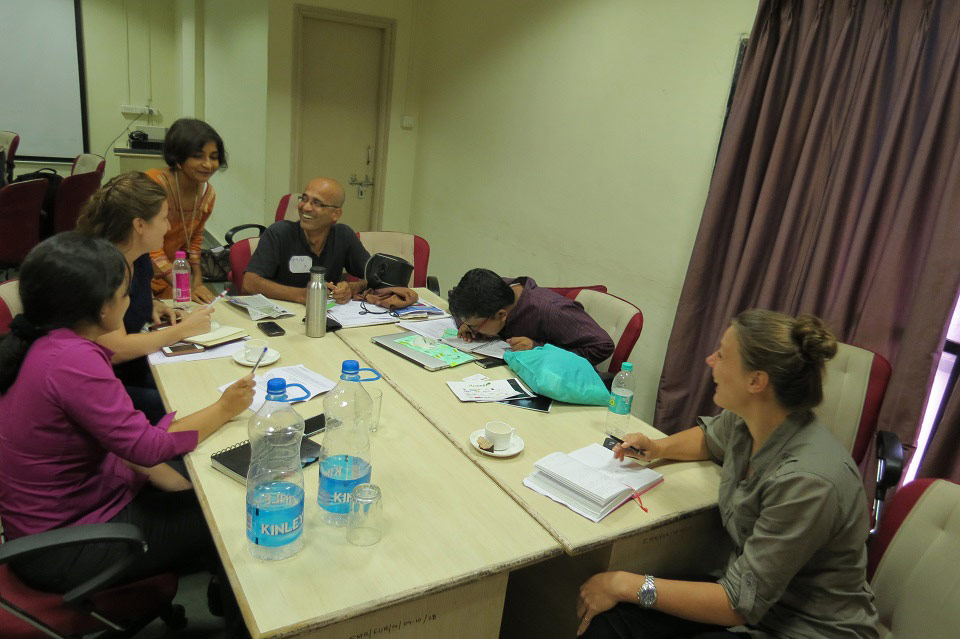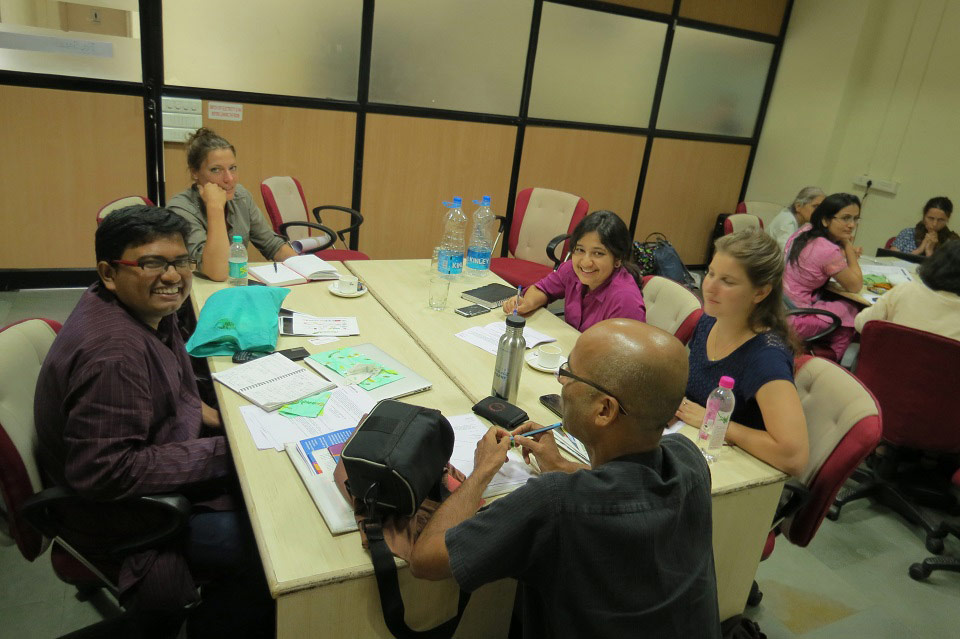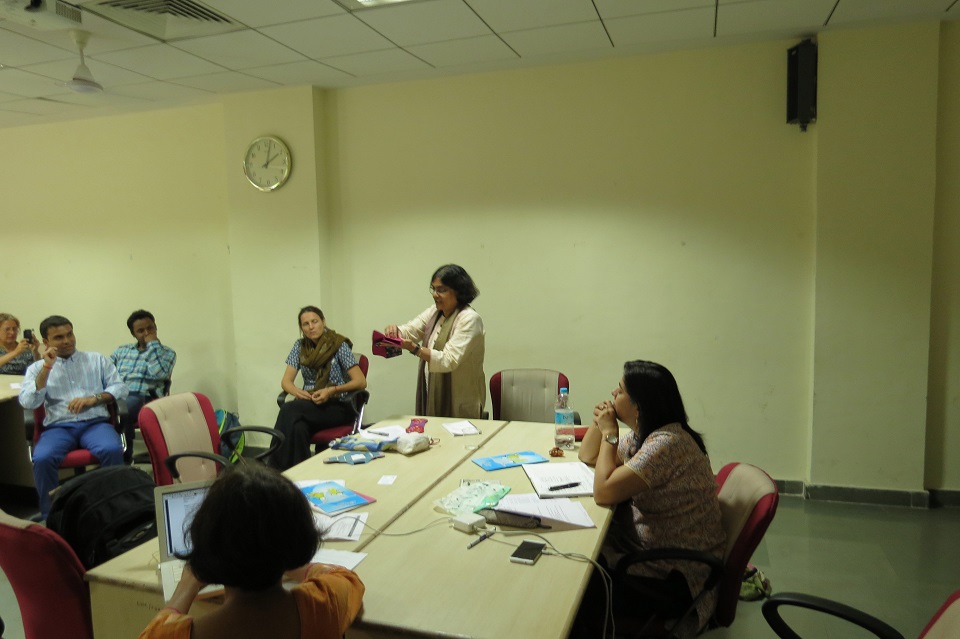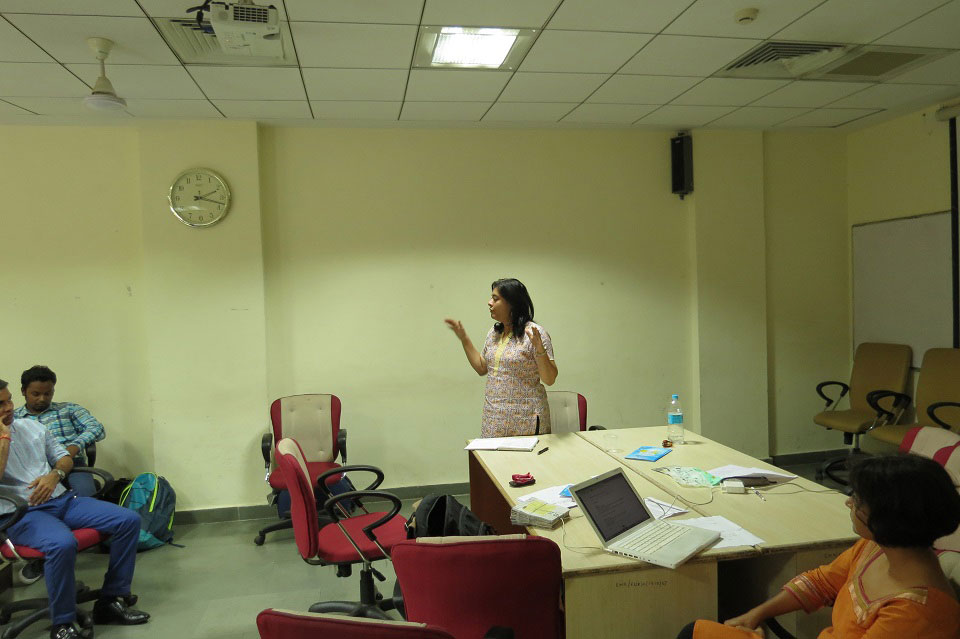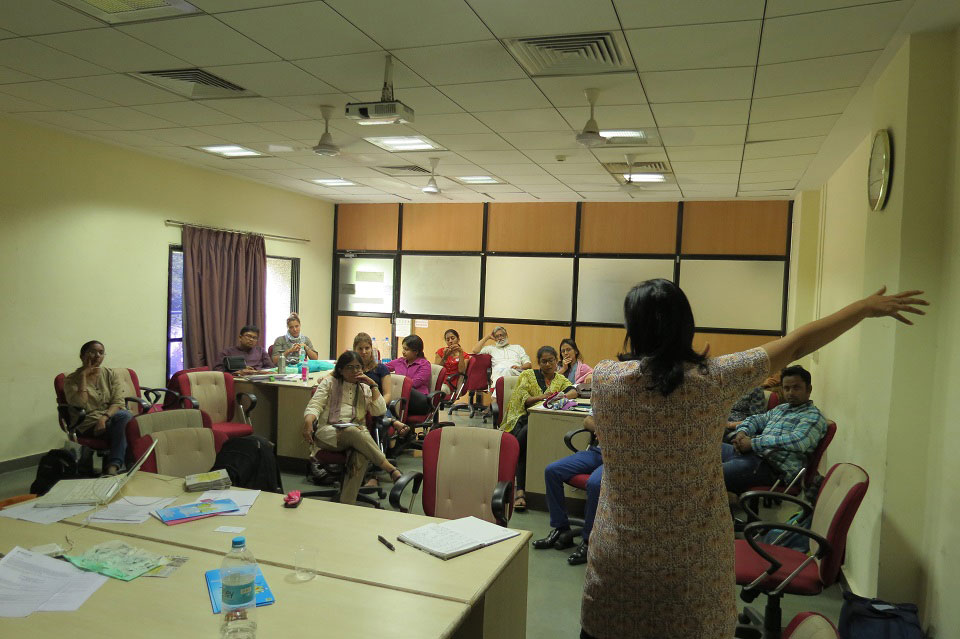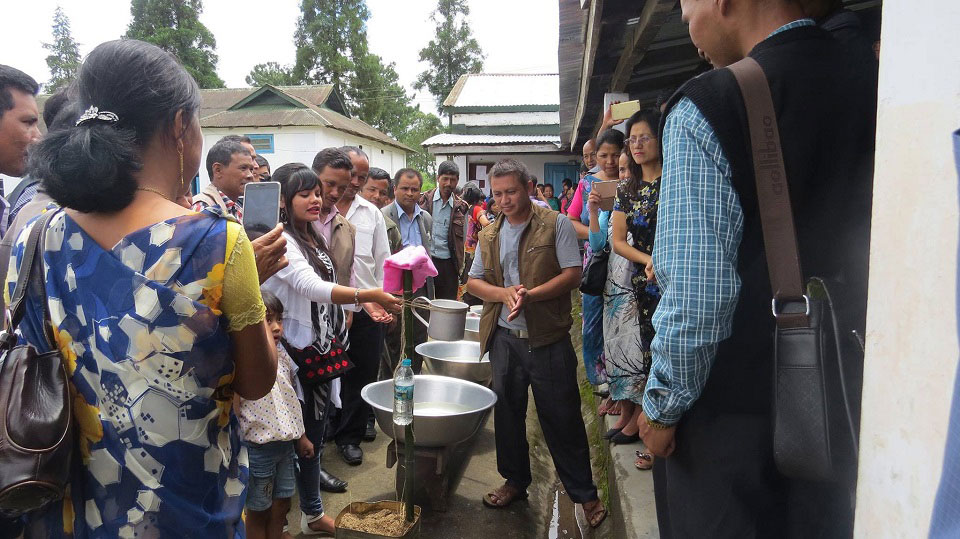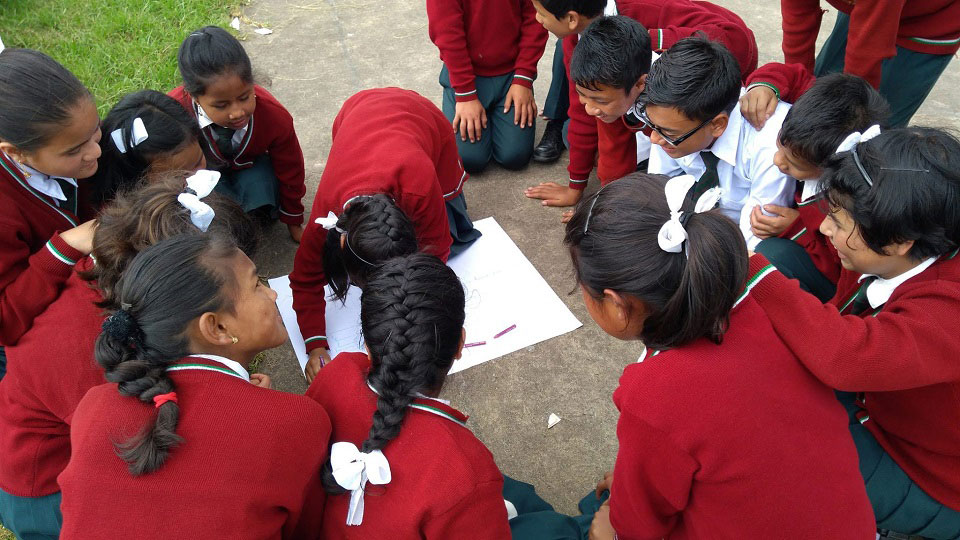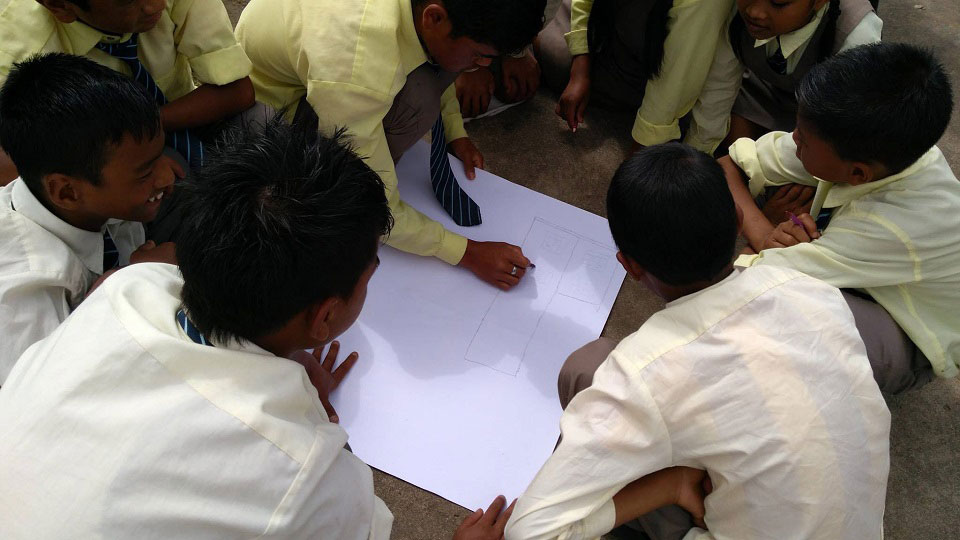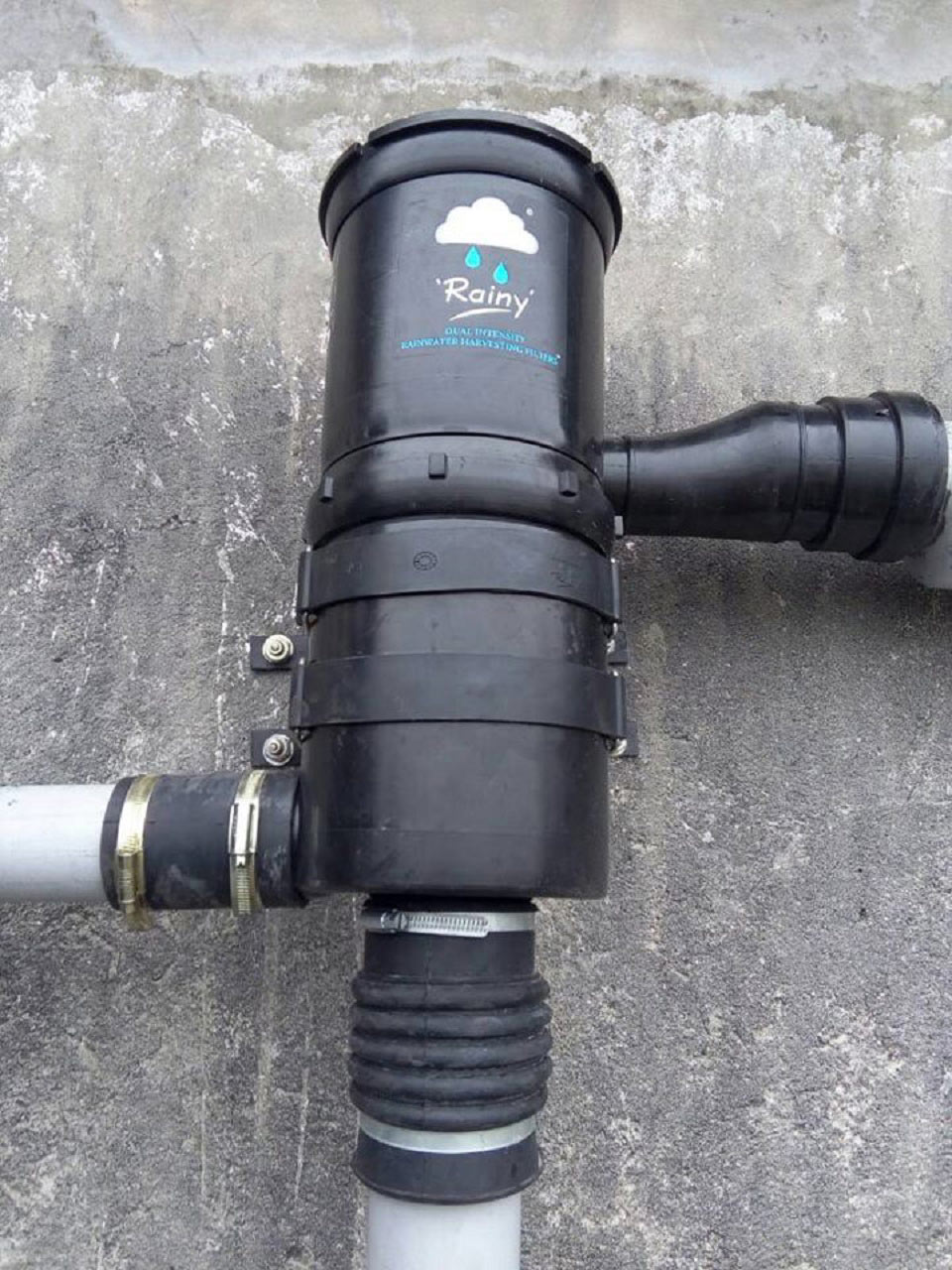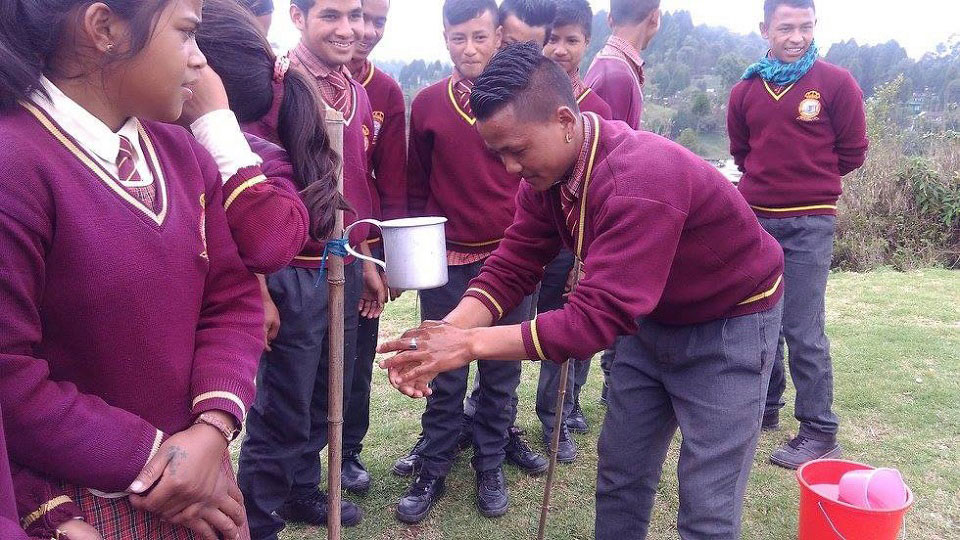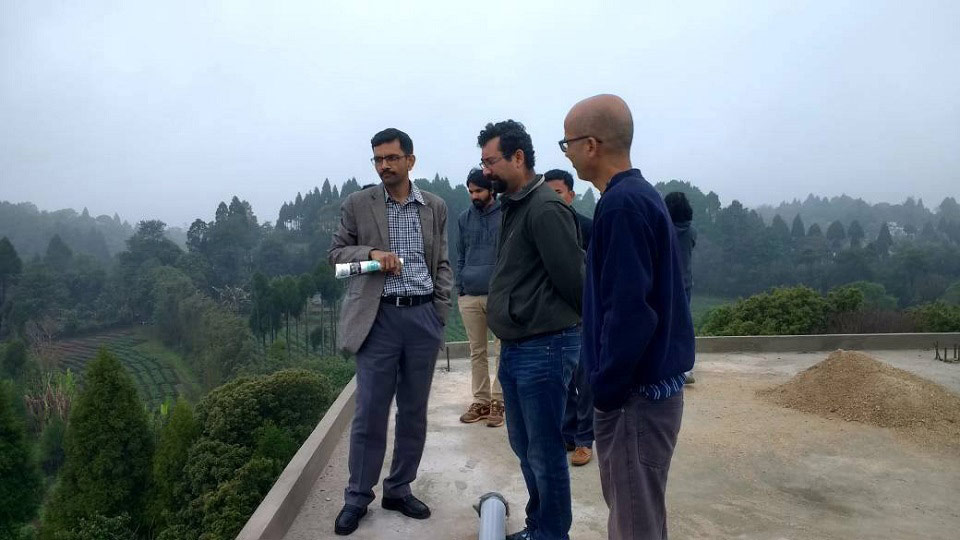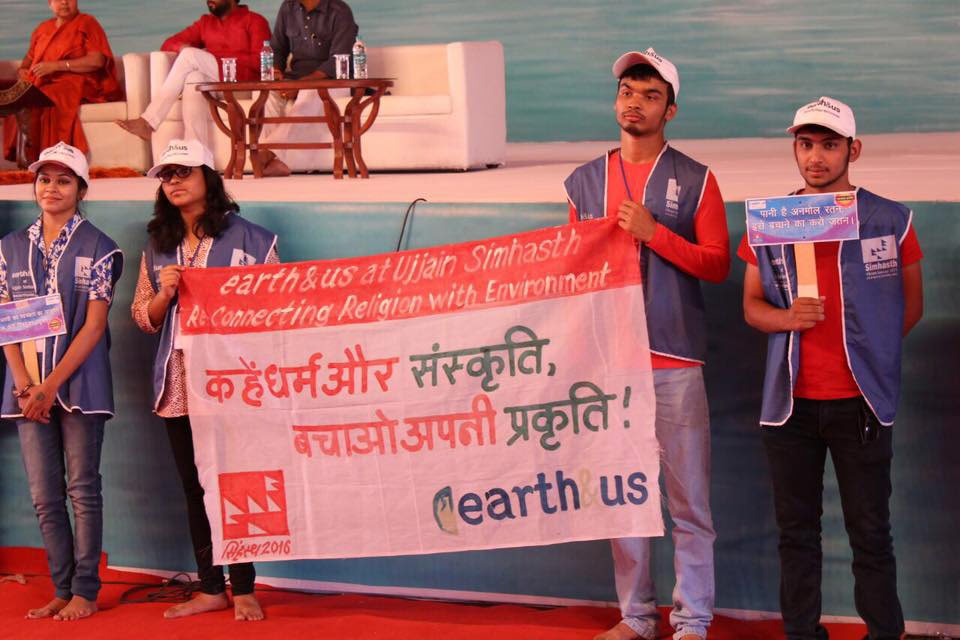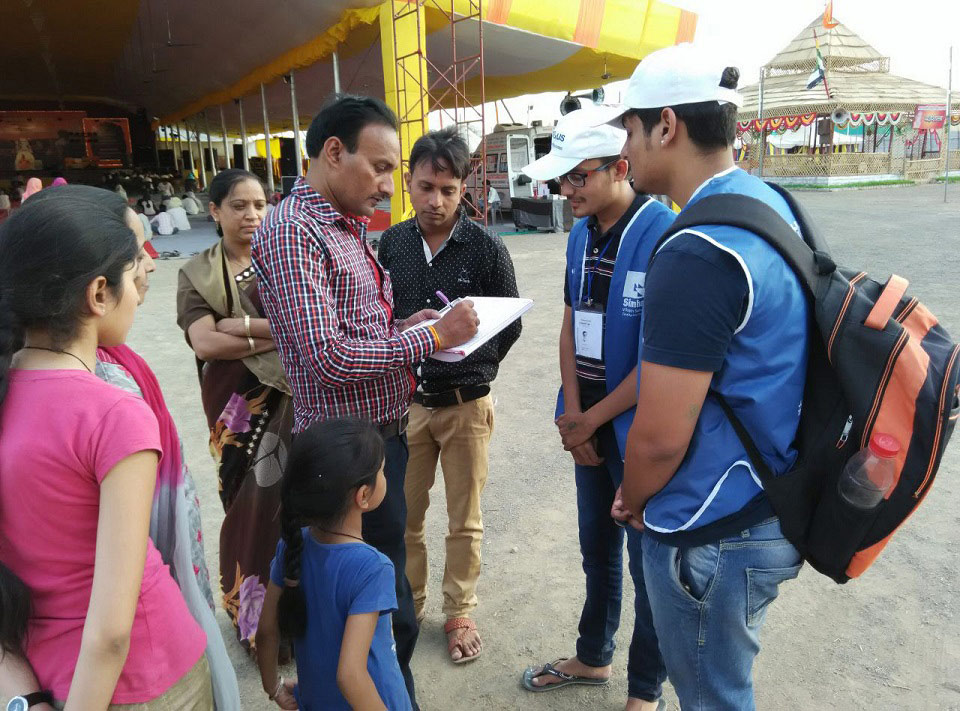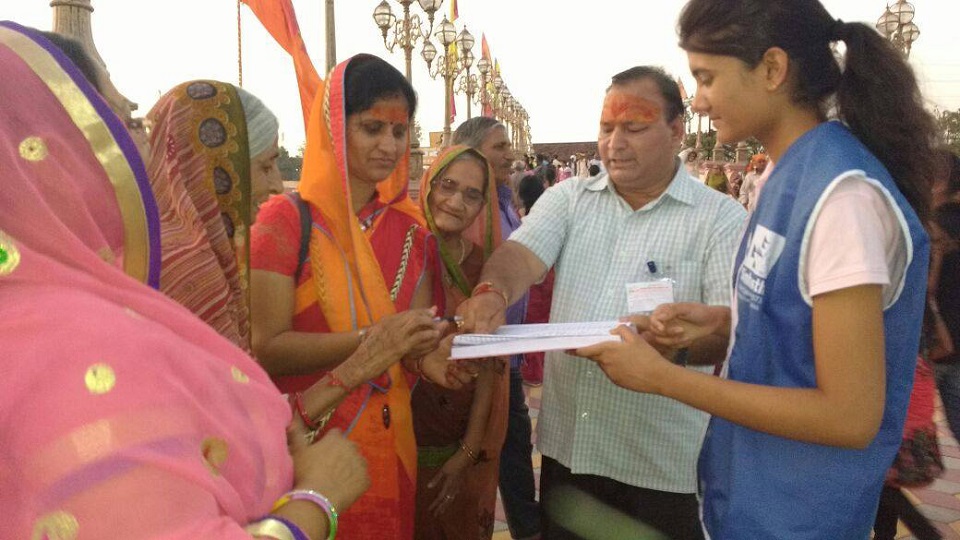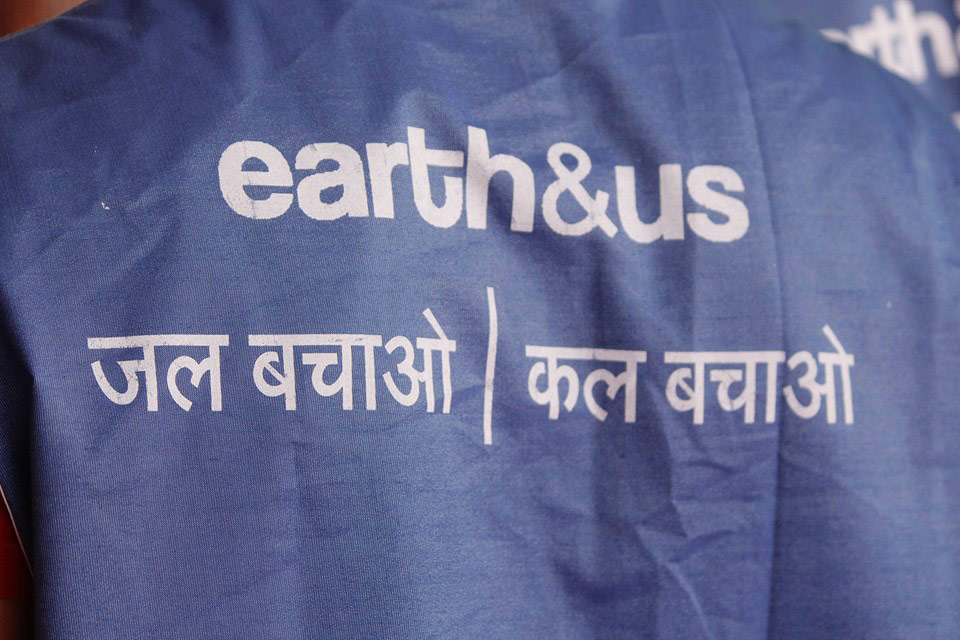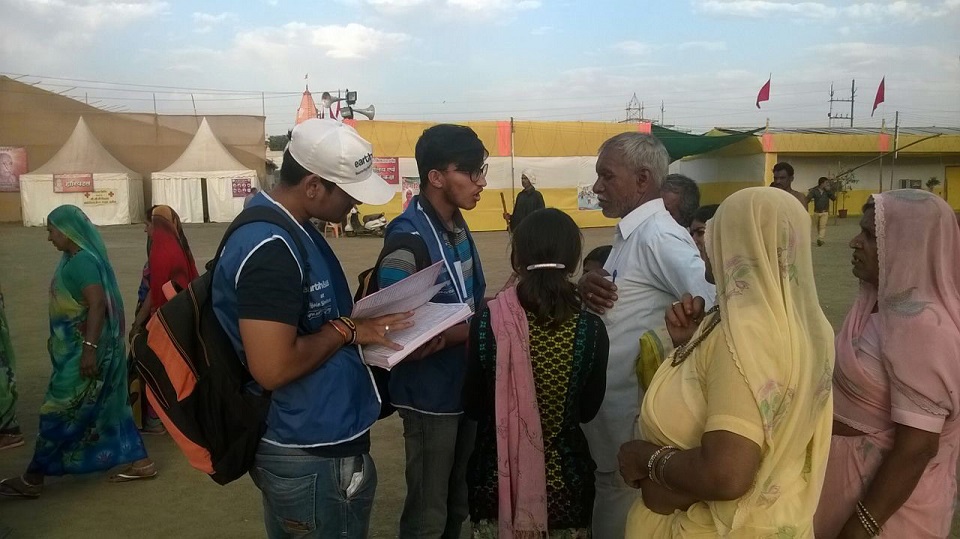-
 Simhasth” or “Kumbh” is a religious festival which is held once every 12 years. In Ujjain in 2016,...
Simhasth” or “Kumbh” is a religious festival which is held once every 12 years. In Ujjain in 2016,... -
 Access to water in rural and remote households is a big challenge in India. In collaboration with the...
Access to water in rural and remote households is a big challenge in India. In collaboration with the... -
 earth&us worked extensively on zero waste management with the Department of Town Panchayats in Tamil Nadu. The Department...
earth&us worked extensively on zero waste management with the Department of Town Panchayats in Tamil Nadu. The Department... -
 One of the most noticeable and significant waste streams in many villages are disposable plastic sanitary pads. They...
One of the most noticeable and significant waste streams in many villages are disposable plastic sanitary pads. They... -
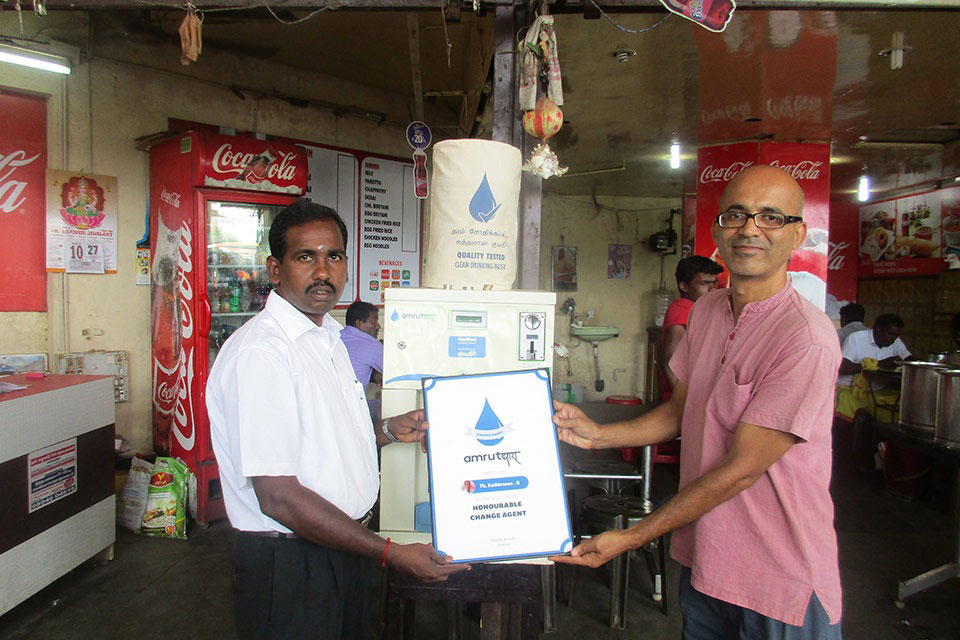 amrutDhara has been created to reduce the consumption of one time ‘use & throw’ plastic (PET) water bottles...
amrutDhara has been created to reduce the consumption of one time ‘use & throw’ plastic (PET) water bottles... -
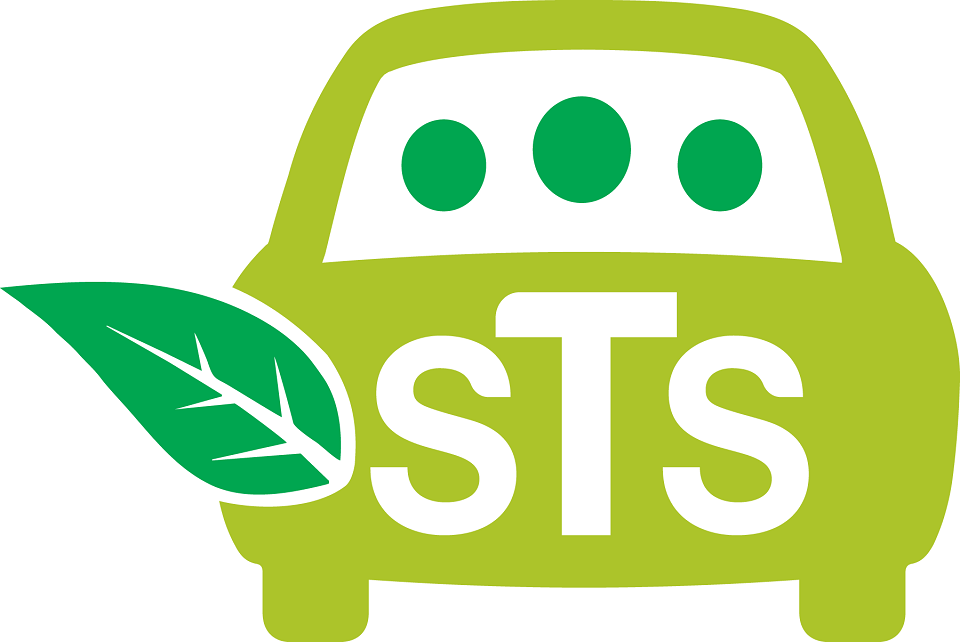 earth&us envisions integrated, affordable and quiet electric transport solutions for India. There are a number of modular projects...
earth&us envisions integrated, affordable and quiet electric transport solutions for India. There are a number of modular projects... -
 The Auroville Library of Things (ALoT) facilitates sharing of under-used things by moving them from a space of...
The Auroville Library of Things (ALoT) facilitates sharing of under-used things by moving them from a space of... -
 The Neem Tree is a community space for people to hang-out and engage in fun and inspiring activities...
The Neem Tree is a community space for people to hang-out and engage in fun and inspiring activities... -
 As part of a major CSR initiative, earth&us in association with ONGC to carried out activities based on...
As part of a major CSR initiative, earth&us in association with ONGC to carried out activities based on... -
 7 million people die of air pollution every year. 844 million people around the world lack basic drinking...
7 million people die of air pollution every year. 844 million people around the world lack basic drinking...
Sustainability
Action-oriented research based projects for a sustainable future
At earth&us, we are passionate about implementing creative sustainable solutions for the planet with finite resources.We strive to protect the commons.
This is the thread that binds us together as a team. It is the roof under which our diverse range of projects reside.
Our projects encourage a re-evaluation of what we need to be happy, to inculcate a practice of sharing, to examine what we are consuming and how it affects the planet.
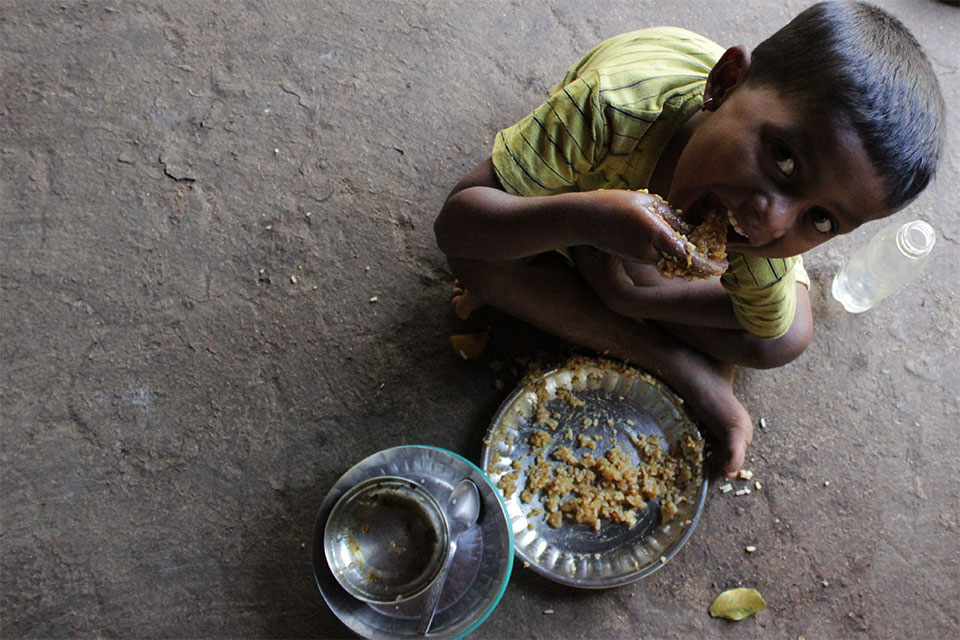
7 lifestyle changes to reduce environmental footprint – Prakhar Kaushik
7 million people die of air pollution every year. 844 million people around the world lack basic drinking water access.
These numbers are only going to get worse as we progress to a more technologically advanced world. For the future of Earth and the future of our children, we need to be aware and responsible citizens.
So in this article, I will list 7 daily habits that harm the environment and what you can do about them.
1. Consuming Animal Products
Research shows that consuming animal products harms many facets of the environment – from land use to climate change.
Not just this, the livestock sector is responsible for 14.5% of anthropogenic greenhouse gas emissions.

What you can do
I am not going to ask you to completely cut on your meat intake or your daily milkshake. But considering eating vegan diets on alternate days can also help in reducing the carbon footprint significantly.
But, if you are interested in going on a vegan diet, watch The Game Changers documentary to know more about the vegan diet and its benefits.
2. Traveling
Be it going for business trips or commuting to the office every day, travelling is one of the biggest contributors to pollution.
A 2018 TERI-ARAI study on PM2.5 emissions showed that transport and road dust contributed to 57% of air pollution in Delhi.
According to a 2017 Nat Geo case study, most of the people in the world have not set a foot on an aeroplane.
Now it is our time to recognise our privilege and be responsible travellers.
What you can do
Consider shifting to a place near your workspace. Reduce unnecessary travel and take public transport when travelling. If travelling by car, try taking more people with you.
Walk to places nearby. This way you will save the environment, save money and also improve your health.
When you travel long distances, take daytime flights. And direct flights without stopovers. Fly economy class, which will reduce your carbon footprint(another way to save you money).
And, if it is possible, choose trains over planes. Read why our founder, Minhaj Ameen chooses to travel by train over a plane.
3. Electronics and Cartridge Disposal
When you see the labelling of an electronic product or a battery, there is a “not to throw in the dustbin” sign that looks like this:
Turns out, most of us are too lazy or too unaware to properly dispose of our electronics and batteries.
India generates about 3 million tonnes of e-waste annually and more than 95% of this is illegally recycled by informal waste pickers. Rudimentary recycling techniques used by these recyclers release toxic chemicals in the surrounding areas.
Every year, 10 million ink cartridges end up in landfills. The chemicals in ink enter the groundwater resources and pollute the food chain, ending up again in the human body in some way or another.
What you can do
When you buy new electronic products, try to exchange them for the old ones. You can also donate the outdated hardware you have to the needy ones. Always get your electronic items repaired. Try to extract the last bit of usefulness left in them.
Here is a list of authorised e-waste recyclers near you in India where you can give your e-waste.
You can always refill your old brand ink cartridges and you can also find a local cartridge recycling facility. Another thing you can do is drop your old cartridges at your local office supply store, they will gladly take them all.
4. Overuse of Paper
We have been taught since childhood how paper overuse leads to cutting down more and more trees. And yet, the global demand for paper amounted to around 414 million metric tons in 2018.
It is expected that this figure will only increase in the next decade. This means more cutting down of trees.
What you can do
Thankfully due to the digital economy, we can significantly reduce the use of paper by:
- Using digital money
- Reading e-books over paperbacks or hardcovers
- Converting physical documents to digital
- Recording everything digitally instead of physically
- Start reading e-news instead of traditional newspapers.
5. Consumerism
The Covid lockdowns taught us one very important lesson: We don’t need a lot to live comfortably.
You accumulate your homes with things that just fill up space and do not serve any need. This increases demand which depletes excess resources and thus affects the environment.
According to a paper by Oxfam, the richest 10% of people produce half of Earth’s climate-harming fossil-fuel emissions, while the poorest half contribute a mere 10%.
What you can do
The easiest way to keep a check on this habit is consuming only what is necessary. But that’s easier said than done.
So, try minimalism. Minimalism is intentionally living with only the things that you need or the things that support your purpose. Apart from controlling emissions, it has numerous other benefits.
If you are interested in learning more, read this post by Joshua Becker.
Also before you buy anything, you must know the environmental impact of the product. earth&us is developing Impactwala which is a comprehensive product rating system that can help you in buying sustainable products.
6. Overuse of Electricity
Our civilization is completely dependent on electricity for survival. There is almost nothing we do today that doesn’t require electricity directly or indirectly.
According to World Bank data, in 2015, 65% of worldwide electricity came from fossil fuels which are the number #1 reason for the emission of greenhouse gases.
What you can do
Turn off the lights when you step away from a room. It doesn’t sound like much, but keeping the lights off even for a few minutes every day makes a difference. You can keep checking on it by putting post-it notes on the switchboard.
Secondly, don’t boil water or other beverages with electric appliances if you can find an alternative. Using electricity for a morning shower or coffee not only uses excess electricity but is also very bad for the environment. A Solar water heater can be a better alternative to a gas-based or electrical water heater.
7. Overuse of Water
70% of the Earth is covered in water but just 2.5% of it is freshwater. And out of that, only 1% is accessible to humans.
And you still use it like you have plenty of it!
Freshwater is the water that keeps you alive. Not only is 60% of your body water, but it is also essential to carry out the necessities of surviving on the planet.
What you can do
First things first, repair the places in your home where water is leaking. Also, turn off the faucet while brushing your teeth. These two things can save gallons of water every month.
Secondly, consider installing composed toilets in your home. Because a bucket full of water goes down the drain every time you flush the toilet. The water that was clean before has to be processed in the wastewater treatment plant until it can be used again. Waste from compost toilets, on the other hand, is recycled to produce fertilizers.
If that doesn’t work for you, there is always the option to reduce the number of flushes or install water-saving toilets.
Bottom Line
So turns out there are several ways we harm the environment, and there are even more ways we can save it.
And now we know, little changes in our daily lives collectively make a large global impact.
Want in on an extra #8th step in saving the environment? It is also the easiest – sharing this article!
Sanitation & Hygiene Awareness in Schools
As part of a major CSR initiative, earth&us in association with ONGC to carried out activities based on the Information, Education and Communication model for better sanitation and hygiene practices. The initiative impacted 5,592 schools where we built and repaired toilets for targeted schools under Swachh Vidhyalaya Abhiyan – Clean India Mission. The schools under this initiative are spread across 10 states and mostly located in remote rural villages. We partnered with FFCT (Feedback Foundation Charitable Trust) that is a leading expert in School Led Total Sanitation (SLTS). We endeavoured to create an Open Defecation Free (ODF) environment on a sustained basis in the targeted schools.
Links
Media
Neem Tree
The Neem Tree is a community space for people to hang-out and engage in fun and inspiring activities to enjoy games, music and movies together. It is also restaurant that serves affordable, locally grown food to residents of Auroville. It also inculcates the habit of conserving water while washing one’s dishes using a system that ensures less wastage. We also encourage learning workshops and other such activities in this space.
Links
Media
Auroville Library of Things (ALoT)
The Auroville Library of Things (ALoT) facilitates sharing of under-used things by moving them from a space of static ownership to dynamic accessibility. The objective is to counter the current trend of hyper-consumption and make the most of our things as a community! We think of this as a prototype and hope to create an open-source franchise model to spread the idea of Library of Things across India.
Links
Media
Shared Transport Service (STS)
earth&us envisions integrated, affordable and quiet electric transport solutions for India. There are a number of modular projects in the pipeline that will make this vision a reality. The Shared Transport Service (STS) addresses two of the pain points: price and carbon emissions for trips made from Auroville and Pondicherry to Chennai. It is a platform that enables the residents and visitors of Auroville to share taxi rides.
amrutDhara
amrutDhara has been created to reduce the consumption of one time ‘use & throw’ plastic (PET) water bottles in India. In 2013, it was among the first few organisations to pioneer and test water ATM in public places. Plastic bottles are significant source of plastic waste and are responsible for serious damage to ecosystems and marine life.
Links
Media
Period of Change
One of the most noticeable and significant waste streams in many villages are disposable plastic sanitary pads. They are also responsible for clogging sewers in cities which are still manually cleaned by workers from the lower caste. The ‘Period of Change’ project addressed the issue of menstrual hygiene management through a national workshop in Pune and a series of webinars. The main objective was to promote more environmentally sustainable and healthy ways to manage
menstruation.
Media
Zero Waste Management
earth&us worked extensively on zero waste management with the Department of Town Panchayats in Tamil Nadu. The Department is responsible for the municipal administration of 528 Town Panchayats with 80 lakh (8 million) inhabitants. Having conducted a detailed survey by visiting 22 Town Panchayats, the team developed a training programme for the municipal staff and waste generators including households and shopkeepers. The training material took the form of 7 booklets covering a plethora of topics on waste management. The team also conducted training workshops for the senior municipal staff which was well received.
Download
Waste Management Training Booklets: English | Tamil
Rain Water Harvesting – Project Pravah
Access to water in rural and remote households is a big challenge in India. In collaboration with the Govt. of Meghalaya, we have pioneered an approach that begins with installing rainwater harvesting systems at schools in water strained communities. The installation is accompanied by extensive awareness and training for school staff and parents on operating and maintaining the system. Local workforce is employed to enhance technical skills in the region. It is expected that the villagers will soon start making rainwater harvesting provisions in their homes when they see the school system working well. A similar initiative has started in Tripura through CSR funding.
Project Pravah aligns itself with the Sarva Shiksha Abhiyan (Education for all) framework, directing all states to provide basic infrastructure facilities such as clean drinking water and toilets in schools.
This initiative is in collaboration with Biome Foundation, Bangalore.
Media
Simhasth
Simhasth” or “Kumbh” is a religious festival which is held once every 12 years. In Ujjain in 2016, it was attended by over 75 million people over a month, making it the largest human gathering on earth. 50 of our volunteers pervaded Simhasth in 2016 with a campaign “Reconnecting religion with environment” to promote environmental sustainability and behaviour change. Lakhs of people were impacted including those who signed our pledge promising to adapt to more sustainable ways of living and practicing religion in a way that does not harm the environment.





